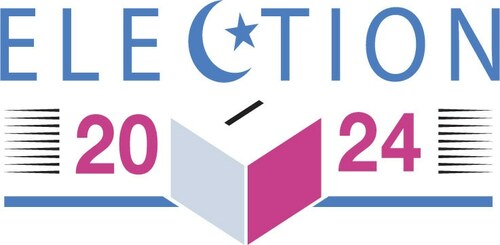
IN the face of threats and an overbearingly patriarchal society, women candidates in Kohistan are breaking social barriers and defying the odds to contest polls on February 8.
Tehmina Faheem, Shakeela Rabbani, Sannaya Sabeel and Momina Basit are among the first women to enter the electoral battlefield in the conservative constituencies of the Kohistan and Torghar region of Khyber Pakhtunkhwa’s Hazara district.
Of the four, three are backed by the Pakistan Tehreek-i-Insaf, whereas Ms Sabeel — who is also affiliated with the PTI — is contesting as an independent candidate as she did not receive a party ticket.
The Kohistan district has earned a reputation for being a nightmare for women and girls, as gender-based violence and child marriages pose serious threats. The literacy rate among indigenous women here is extremely low, with over 97 per cent of women recorded as saying they have never been to a school or seminary.
These women are contesting their maiden election as the dark shadow of the gruesome murder of a young girl looms over them. Not long ago, a jirga in the Barsharyal area of Kolai-Palas district had ordered the killing of a girl and her friend after a social media video and pictures showed them standing with two boys of their village. The story was reminiscent of the chilling 2012 incident in which five girls were murdered over “honour” after a video of them dancing went viral.
Four women battle the odds to make history by contesting elections from the conservative district for the first time
“Women here are overwhelmingly blind to their rights. Because of the society’s patriarchal structure, I and other female contestants vying for the upcoming elections can’t directly mix [with the public] to solicit votes even within our gender,” said Ms Faheem, who is contesting elections from PK-31 in Upper Kohistan.
Ms Faheem is a social worker, and prides herself in challenging social norms. “I laid the foundation of the PTI’s women’s wing in Kohistan. No other parties physically existed when I was the divisional president in Hazara as a consequence of receiving death threats in the past,” she added.
Last week, a group of Kohistan clerics, mostly members of the Jamiat Ulema-i-Islam-Fazl, issued a fatwa (Islamic decree) against canvassing by and for women election candidates and declared the act unIslamic. The fatwa condemns the act of a woman of going door to door to get votes, and is said to be endorsed by 30 ‘religious scholars’ and around 400 clerics from the Kohistan region.
Therefore, Ms Faheem’s campaign is limited to engagement with the few liberal-minded workers in the district of the PTI.
Shakeela Rabbani is running her campaign in Torghar PK-41. Her campaign, too, is limited to those who are willing to welcome a female election candidate.
“The jirga is the strongest and most influential institution here. If I have to address my voters, I would have to hold a discussion in the hujra (community hall)as there is no other infrastructure,” she said.
She described Kohistan’s patriarchal traditions as “a stage drama meant for men, by men”. “Women play the role of extras,” she said.
Zahid Khan, the regional coordinator the Human Rights Commission of Pakistan (HRCP) termed the fatwa contrary to women’s rights.
He said the Torghar and Kohistan region — comprising Upper Kohistan, Lower Kohistan, and Kolai-Palas (Kohistan) — stands atop Khyber Pakhtunkhwa where women and child rights were routinely violated.
“A woman lawmaker or parliamentarian from here could be so effective in taking the issues of this region to the assemblies. Child marriage and gender-based violence are widely prevalent here,” Mr Khan said.
‘Fatwa contradicts constitutional rights’
Nilofar Bakhtiar, the chair of the National Commission on the Status of Women (NCSW), took notice of the Kohistan fatwa and brought it to the attention of the Chief Election Commissioner of Pakistan for “immediate remedial measures to ensure a hostile free environment for women contenders”.
“As per this fatwa’s interpretation, women are being barred from exercising their constitutional and Islamic rights to stand in elections as contestants, solicit and cast votes,” she said.
Ms Bakhtiar said, “Our struggle to enhance women’s representation in the parliament continues, [and we hope that] gender disparity comes to an end in the country,” she said.
She said increased representation of women would greatly reduce the issues they face, as lawmakers can influence legislation at moments when the commission has been unsuccessful in creating awareness about dangerous clauses, such as in the Child Marriage Restraint Act of 1929.
“This slightly less than one century-old legislation is still being practised as a law at the federal level, in Khyber Pakhtunkhwa and Balochistan,” she decried.
“Would you believe that those who violate this law, which is the breeding ground of societal evils, can only be fined Rs1,000, with a simple imprisonment of only one month,” she said.
Ms Bakhtiar said Pakistan faced a grim reality, as around 30 per cent of females were being married off as child brides, with higher numbers in rural areas.
Published in Dawn, February 6th, 2024
To find your constituency and location of your polling booth, SMS your NIC number (no spaces) to 8300. Once you know your constituency, visit the ECP website here for candidates.















































Dear visitor, the comments section is undergoing an overhaul and will return soon.